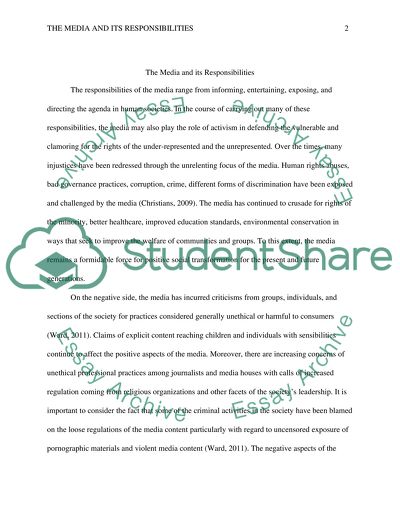Cite this document
(“The Media and Its Responsibilities Essay Example | Topics and Well Written Essays - 3000 words”, n.d.)
The Media and Its Responsibilities Essay Example | Topics and Well Written Essays - 3000 words. Retrieved from https://studentshare.org/journalism-communication/1612803-the-media-and-its-responsibilities
The Media and Its Responsibilities Essay Example | Topics and Well Written Essays - 3000 words. Retrieved from https://studentshare.org/journalism-communication/1612803-the-media-and-its-responsibilities
(The Media and Its Responsibilities Essay Example | Topics and Well Written Essays - 3000 Words)
The Media and Its Responsibilities Essay Example | Topics and Well Written Essays - 3000 Words. https://studentshare.org/journalism-communication/1612803-the-media-and-its-responsibilities.
The Media and Its Responsibilities Essay Example | Topics and Well Written Essays - 3000 Words. https://studentshare.org/journalism-communication/1612803-the-media-and-its-responsibilities.
“The Media and Its Responsibilities Essay Example | Topics and Well Written Essays - 3000 Words”, n.d. https://studentshare.org/journalism-communication/1612803-the-media-and-its-responsibilities.


